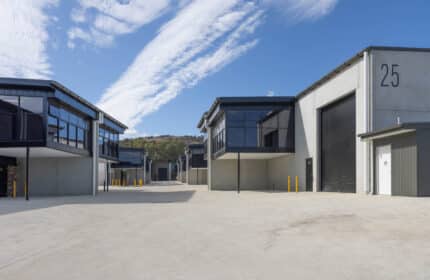Strata living is a form of communal living where individuals own their lot but also share ownership and responsibility for common areas within a development. Despite the benefits of communal living, owners have the responsibility of effectively handling shared waste and recycling. Waste management often brings about common challenges and complexities that require solutions and support from strata management services.
Limited Space
High-density living often means limited space for waste disposal. Overflowing bins and dirty waste rooms, not only take away from the appeal of a property but also attract pests, posing health risks to residents.
New Developments
In new developments, we expect challenges such as:
- Increased cardboard and recycling.
- Discarded carpet or floorboards as people change flooring before they move in.
- Blocked or damaged bin chutes
- Overflowing bins
- Waste and recycling placed on the bin room floor due to full bins
- ACT No Waste refusing collections due to unsafe bins and waste room
While these challenges are expected, they can be avoided with proper planning from your Strata Management and cooperation from residents. It is also the responsibility of your Strata Manager to ensure your first year’s levy covers additional waste and recycling measures.
How to effectively manage waste and recycling in new developments:
- Daily site attendance of a Building Manager (or caretaker)
- Focusing on applications for flooring changes (often this results in dumped carpet or flooring in the bin room)
- Move-in process with scheduling or booking system supported by your Strata Management.
- Planned budget in year 1’s levy to include:
- Additional waste or recycling collections,
- Removal of excess recycling,
- Additional site visits for unblocking bin-chutes,
- Renting of additional waste or recycling bins for a temporary period,
- Cleaning of bin room, bins, and waste chute following the move-in period
- Signage for proper waste and recycling
- Including guidance and FAQ’s in the Welcome Packs
- Organising a temporary skip bin
In the initial stages of a new development, it is expected to have excess recycling. However, once residents have settled, there is a reasonable expectation for everyone to adhere to waste and recycling guidelines. Unfortunately, this isn’t always the case, and further discussions about accountability methods are required. Often, owners and executive committee members request additional signage, further mass communications, and CCTV to monitor residents.
Is CCTV enough?
CCTV is a useful tool to show residents that they will be held accountable for any inappropriate dumping of waste and recycling, however, it can be difficult to trace these instances back to a specific resident.
A solution to this issue can be the installation of fob-access-only doors in each bin room to accompany the CCTV. This would eliminate the requirement for comprehensive CCTV coverage and allow for traceability back to the unit registered with the fob. It’s essential to ensure that such measures do not interfere with approvals from Transport Canberra City Services (TCCS) or impede ACT No Waste’s bin collection.
If you have any questions about waste and recycling or have a community needing bulky waste collection, be sure to get in touch with our Strata Management team today.



